Sustainable Development.
If sustainable development is ‘development that meets the needs of the present without compromising the ability of future generations to meet their own needs’ (World Commission on Environment and Development 1987), and that this necessarily includes the environmental sustainability of a development, it is useful to examine what this means for the River Ribble.
Local policy is informed by British Government policy, which uses the same criteria for Sustainable Development targets, and adds:
‘Natural resources are vital to our existence. Our health and well-being are closely linked to the quality of our air, water, soils and biological resources. Our landscapes, seascapes and wildlife are inseparable from our culture and inspire art and literature. Our economy and key industrial sectors are directly and indirectly reliant on functioning ecosystems. Many people believe that natural resources have their own intrinsic value, that is, they are important for their own sake regardless of their functional value.
Defra are working within this same remit for Sustainable Development, and their aim in their development of the Ecosystems Approach Project is to explicitly draw on the global Millenium Ecosystem Assessment (MA).
The Millennium Ecosystem Assessment assessed the consequences of ecosystem change for human well-being. From 2001 to 2005, the MA involved the work of more than 1,360 experts worldwide. Their findings provide a state-of-the-art scientific appraisal of the condition and trends in the world’s ecosystems and the services they provide, as well as the scientific basis for action to conserve and use them sustainably.
The MA Statement on Wetland ecosystems reads:
‘Wetlands perform a wide range of functions of great value to people – from acting as a natural pollution filter and preventing floods by storing water during heavy rains to supporting wildlife and recreation’ (Sec 2:0, p11). As such, ‘the net benefits from the more sustainably managed ecosystem are greater than those from the converted ecosystem when measurements include both marketed and nonmarketed services, even though the private (market) benefits would be greater from the converted ecosystem’ (p11).
This means that the more obvious commercial interests, and the economic benefits accrued as a result of converting ecosystems (by barraging an intertidal river or estuary, say) will be outweighed by the economic losses in the long term. This is precisely the case with Cardiff, of course.
The global status of wetlands, assessed by the Millenium Ecosystem Assessment, are depleting due to development, and as such, form increased risks to human sustainability in the ‘loss of natural buffers’ on a number of levels (Sec 2:17, p19):
‘The loss of wetlands combined with increased pollution has reduced the ability of natural systems to cleanse water supplies, with major implications for human health and fisheries’ (20).
‘While wealthier economies can more easily afford engineered alternatives to natural services, such as artificial flood defenses to compensate for the changes made to river banks and wetlands, the cost of such measures can place a heavy burden on public expenditure. Investment in measures to conserve the original function of these natural spaces is generally a far cheaper and highly effective option’(Section 2:20, p22).
The MA’s “Wetlands and Water” Synthesis is a detailed Report, ‘prepared to provide Contracting Parties to the Convention of Wetlands (RAMSAR, Iran, 1971), and all those responsible for and involved in implementation of the Convention and concerned with the future sustainability of wetlands and water, with a synthesis of the findings of the Millenium Ecosystem Assessment’
(Millenium Ecosystem Assessment 2005, Ecosystems and Human Well-Being: Wetlands and Water Synthesis, World Resources Institute, Introduction).
It reads:
‘It is well established that coastal ecosystems such as mangroves, coral reefs, tidal flats, and estuaries are experiencing degradation and loss’ (W&W, p.25, original emphasis).
‘Coastal wetlands… contain some of the most productive [wildlife] communities in the world’ (26), and there is ‘increasing evidence of a rapid and continuing wide-spread decline in many populations of wetland-dependent species… including molluscs, amphibians, fish, waterbirds, and some water-dependent mammals… [the] overall… trend in vertebrate species populations… shows a continuous and rapid decline in freshwater vertebrate populations… [while] invertebrates… species are significantly threatened with extinction’ (26-7).
Whilst the list of threatened and declining wetland wildlife species is long and depressing, the Report also goes to great lengths to examine the vital importance to human communities of wetland ecosystems – this is, in fact, the central role of the Report.
Our Wetlands provide, manage, and regulate fresh water, food, flood defences, nutrient cycling, groundwater regulation, pollution control, climate regulation (a complex system including regulation of greenhouse gases, temperature, and precipitation) (see p.31 of W&W for more details of what each criteria involves), and of course, ‘wetlands have significant aesthetic, educational, cultural, and spiritual values and provide invaluable opportunities for recreation and tourism’ (30).
Read more about Wetlands and Water, and the Millenium Ecosystem Assessment.
The Ribble Coast & Wetlands Regional Park provides us with an alternative vision for the present and future of the Ribble corridor, and one which is sustainable in environmental and economic terms – and doesn’t involve changing the appearance or the dynamic ecosystem of the Ribble and its Green Belt and Floodplain, but instead, relies on its ecological importance to provide excellent amenities for local people and tourists alike… it is estimated that new visitors to the Ribble Wetlands will generate £115 million EVERY YEAR – and of course, will cost a lot less than a barrage to maintain!
You can contact Reigh Belisama at savetheribble@tiscali.co.uk
Wednesday, 4 April 2007
Subscribe to:
Post Comments (Atom)






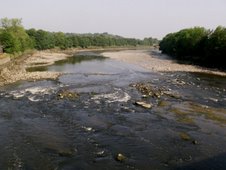
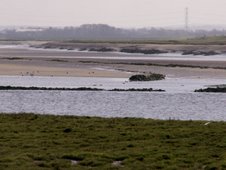
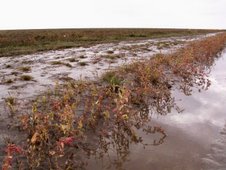





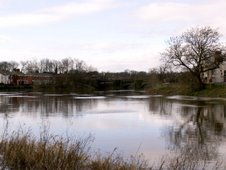

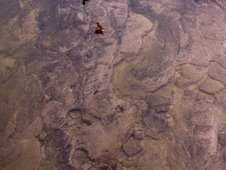














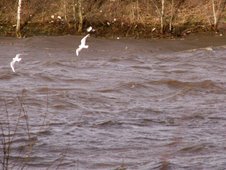
No comments:
Post a Comment